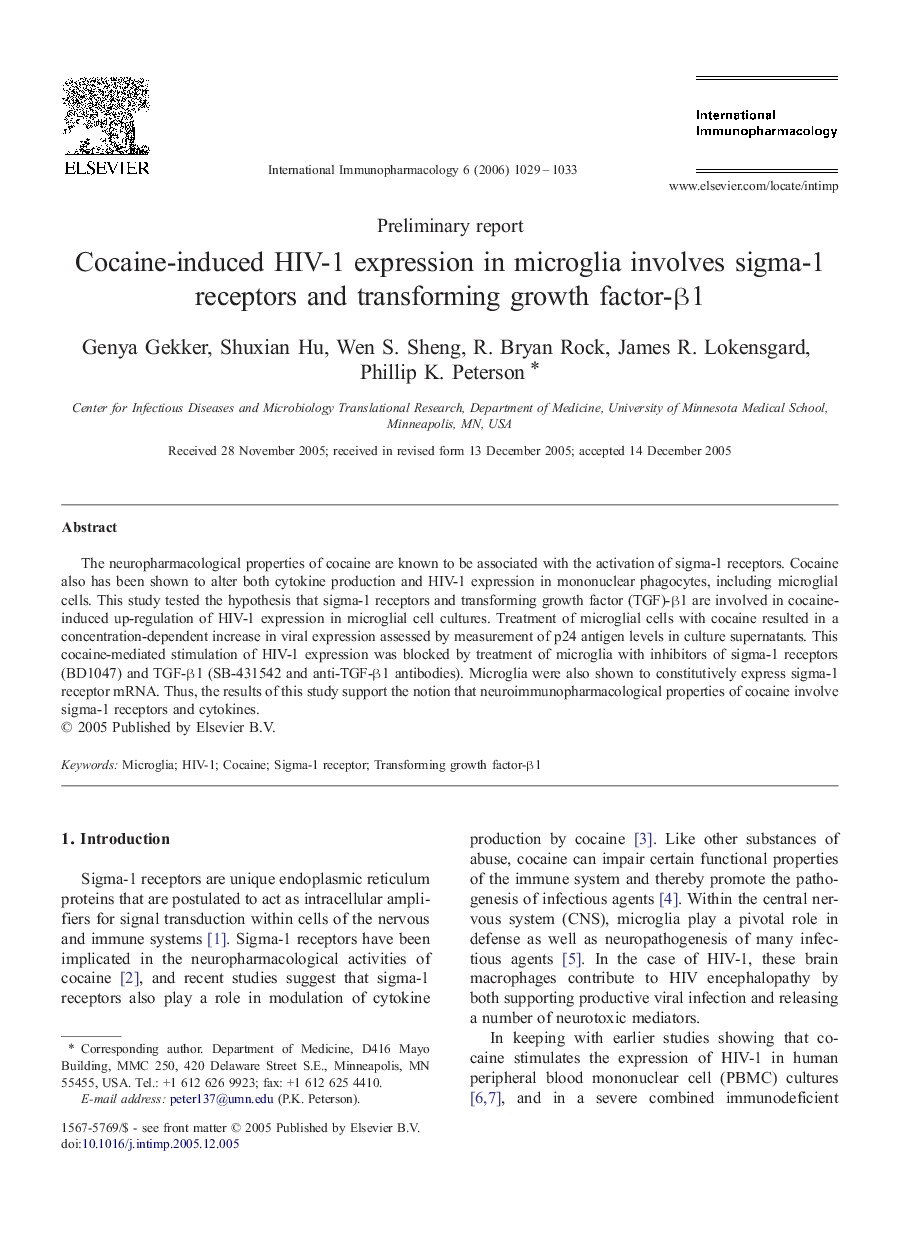| Article ID | Journal | Published Year | Pages | File Type |
|---|---|---|---|---|
| 2542600 | International Immunopharmacology | 2006 | 5 Pages |
The neuropharmacological properties of cocaine are known to be associated with the activation of sigma-1 receptors. Cocaine also has been shown to alter both cytokine production and HIV-1 expression in mononuclear phagocytes, including microglial cells. This study tested the hypothesis that sigma-1 receptors and transforming growth factor (TGF)-β1 are involved in cocaine-induced up-regulation of HIV-1 expression in microglial cell cultures. Treatment of microglial cells with cocaine resulted in a concentration-dependent increase in viral expression assessed by measurement of p24 antigen levels in culture supernatants. This cocaine-mediated stimulation of HIV-1 expression was blocked by treatment of microglia with inhibitors of sigma-1 receptors (BD1047) and TGF-β1 (SB-431542 and anti-TGF-β1 antibodies). Microglia were also shown to constitutively express sigma-1 receptor mRNA. Thus, the results of this study support the notion that neuroimmunopharmacological properties of cocaine involve sigma-1 receptors and cytokines.
